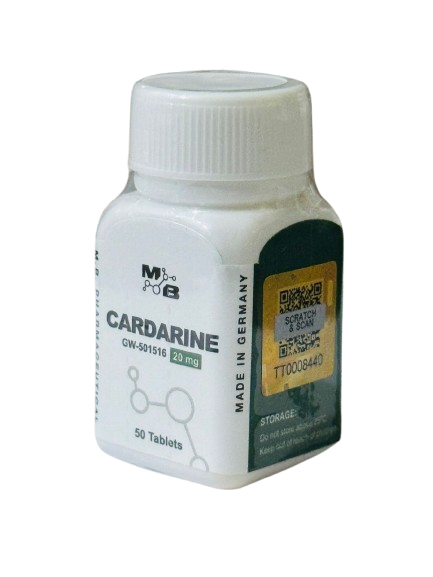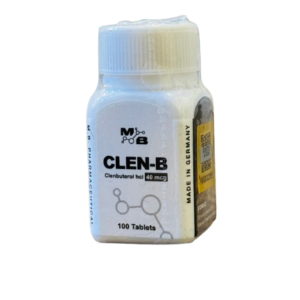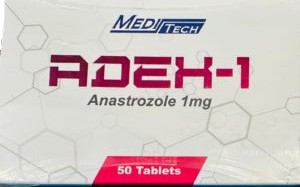Description
MB Cardarine GW-501516 (20 mg):
Introduction
MB Cardarine GW-501516, often simply called Cardarine, is a research compound that has gained significant attention in the fitness and wellness community. Originally developed in the 1990s as a potential treatment for metabolic and cardiovascular conditions, Cardarine belongs to a class of compounds known as PPARδ receptor agonists. Despite being discontinued from pharmaceutical trials, it continues to attract interest as a research chemical.
What is GW-501516?
Cardarine (GW-501516) is not a steroid and not a SARM (Selective Androgen Receptor Modulator), although it is frequently misclassified as one. Instead, it works by activating the peroxisome proliferator-activated receptor delta (PPARδ). This activation influences how the body processes energy, shifting metabolism towards increased fat utilization and endurance.
Potential Effects Reported in Research
While human clinical data is limited, studies and anecdotal reports suggest several notable effects of Cardarine:
-
Enhanced Endurance: Athletes and researchers have observed increased stamina and cardiovascular performance.
-
Fat Utilization: Cardarine may encourage the body to use fat as its primary energy source, potentially assisting in fat reduction.
-
Metabolic Support: It has been studied for its potential role in regulating cholesterol and glucose levels.
-
Non-Hormonal Action: Since Cardarine does not affect natural testosterone production, it does not typically require post-cycle therapy (PCT).
MB Cardarine 20 mg Dosage Format
The MB Cardarine formulation typically comes in 20 mg per capsule or tablet, making it straightforward for researchers to measure and administer within their protocols. However, it is critical to note that dosage in humans has not been officially approved, and any use should remain within research settings.
Safety and Warnings
While Cardarine has shown promise in animal studies, concerns have been raised about its long-term safety. Some rodent studies linked high dosages with potential cancer risks, which led to the discontinuation of its pharmaceutical development. For this reason:
-
Cardarine is not approved for human consumption by the FDA or similar health authorities.
-
It is sold strictly as a research chemical.
-
Anyone considering it should be aware of the legal and safety risks.
Conclusion
MB Cardarine GW-501516 (20 mg) remains one of the most discussed research compounds in the performance and fitness world. While early findings highlight its potential benefits for endurance, fat metabolism, and overall energy regulation, the lack of long-term human studies means its use carries significant uncertainty. Researchers and consumers should approach it with caution, respecting its research-only status.






Reviews
There are no reviews yet.